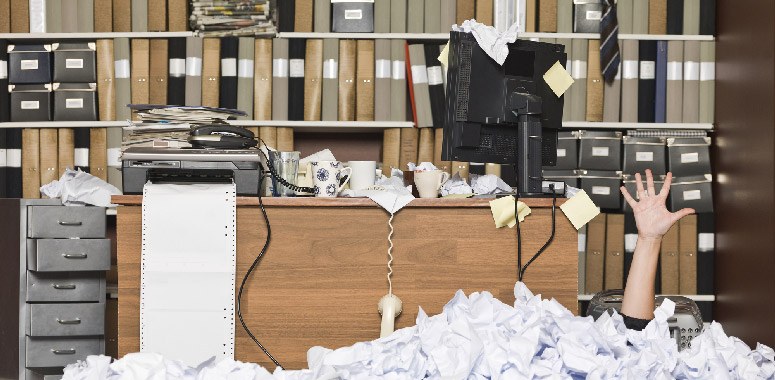Eight Biggest Time Wasters in Workplace and How to Handle Them
Time management is an essential factor to consider when working at the office in order to accomplish tasks on a daily basis. Despite the fact that most individuals understand the importance of why it is necessary to avoid wasting time at work, doing so can still be quite difficult. If you're having trouble increasing your productivity, it may be beneficial to take note of strategies that will help you overcome time-wasters.
While working, it is necessary to avoid time wasters as these can cause interruptions and distractions for the affected individual. Figuring out a way to avoid these impediments can assist you in working effectively while at the same time focusing more on the task at hand. There are lots of individual and environmental factors that can be a part of wasted time at the office. Therefore, having an understanding of these factors can assist you in overcoming the whole situation in order for you to be productive at work. In this article, we will be discussing eight major time wasters in the workplace and highlighting how to handle them.

Eight Time-Wasters and How To Avoid Them
To work effectively and achieve your daily goals at the workplace, listed below are eight time-wasters that most people experience at their workplace.
Interruptions

Most people tend to face various types of interruptions while working, and these can include those from text messages, emails, calls, or even other employees coming to ask questions. Although these interruptions might not be considered quite disturbing, they can distract you from the work you were doing in the first instance, thereby making it difficult for you to go back to it with maximum attention. Therefore, set aside a particular time during your working hours when you will be focused on your tasks without any form of interruption. You should consider turning off your phone or notifying your coworkers that you won’t be able to attend to them until later.
Social Media

One of the major time-wasters in the workplace is social media. Individuals can log onto any social media platform such as Facebook, Twitter, and Instagram on their device, making it accessible to them at any time. Because people can access their social media at any time during working hours, it makes it difficult for them to focus on the task given to them. Therefore, the need to overcome the urge to browse through any of your social media platforms is of utmost importance. To avoid situations wherein you will be caught up on social media, it is advisable to restrict these applications during working hours.
Working Without a Plan

Because most people are assigned various tasks to work on in a day, there is a need to plan. Working without having a laid-down strategy may put you at the risk of wasting your time and prevent you from accomplishing your daily tasks. To avoid such situations, it is important to plan your workflow purposefully for the following day before leaving work. With this, you can figure out a schedule that works well for you and helps you achieve your goals effectively.
Multitasking

It is common for employees to work on multiple tasks at a time. Although they feel it helps them save time and meet their target effectively, that is not the case. Multitasking most of the time is a form of switching between them rather than doing them simultaneously. To prevent yourself from wasting time, ensure you focus maximally on one task at a time before going onto the next, rather than trying to multitask.
Procrastination

In situations where you end up procrastinating on a task that you should have completed, you tend to waste more time eventually. This is a result of the fact that procrastination mostly leads to spending more time setting tasks aside by worrying about them and then eventually rescheduling those tasks continuously. To avoid this time waster, take into consideration your workflow principle and ensure you make use of a personal policy when managing your daily tasks. With this, you can become more effective and efficient, thereby strengthening your ability to overcome the urge to procrastinate.
Disorganization

When you work in a clumsy environment, there is a greater chance of being inefficient. If there is a need to look for paperwork or search for a particular file on your computer, there is a possibility of you wasting time searching for it than if you make use of a more organized system. To save yourself the stress of wasting time, ensure that you organize your workspace and place key items in strategic locations where you can gain easy access to them whenever the need arises. With this, you can work more efficiently and without stress.
Taking on colleagues’ Tasks

It is common practice amongst coworkers to take up certain responsibilities for one another in a collaborative working environment. Although this system can help make workflow easier, it is necessary to avoid taking on excess tasks to prevent situations in which you are unable to complete your daily tasks. To overcome this time waster, you should endeavor to be considerate of yourself and set appropriate boundaries regarding taking on another coworker’s task. Ensure that you have completed your tasks before taking up other ones.
Unnecessary meetings

One thing you should note is that meetings are not always necessary to schedule, as the information can be passed across via various other means, such as direct messages, memos, or emails. Most of the time, virtual and person-to-person meetings can be seen as a time waster. To avoid this, you can take your time to logically think about the aim of the meeting before actually scheduling it. Try to take note of the result you plan to achieve with the proposed meeting, and see if you can figure out a way to efficiently achieve the same result by taking other measures.
Conclusion
Time management is an essential factor to consider at the workplace, as it goes a long way in affecting workflow. Therefore, it is important to identify time wasters in the workplace and figure out ways to avoid them.






